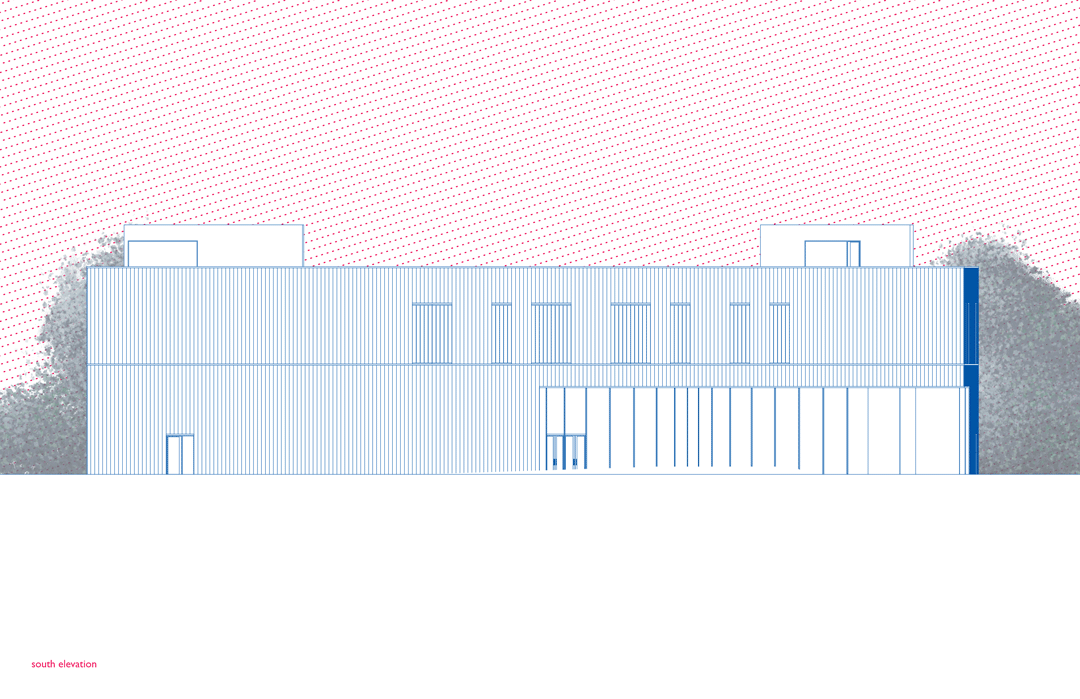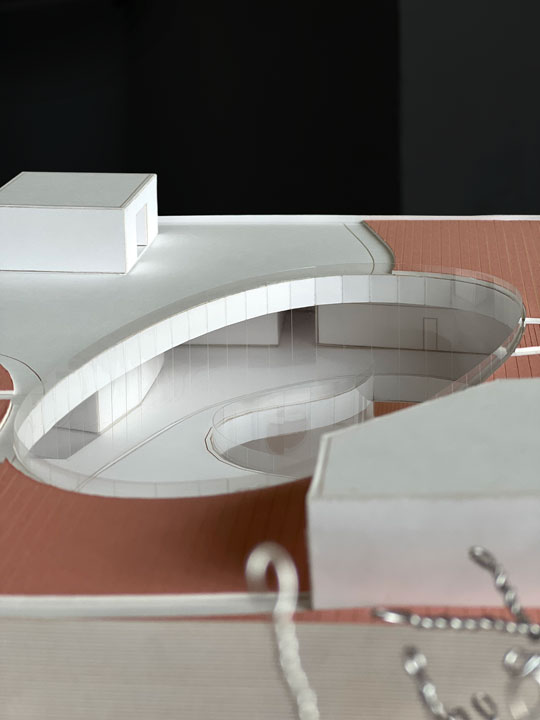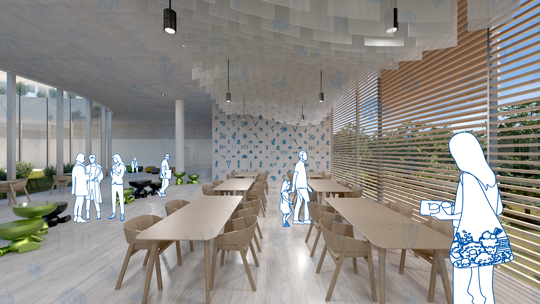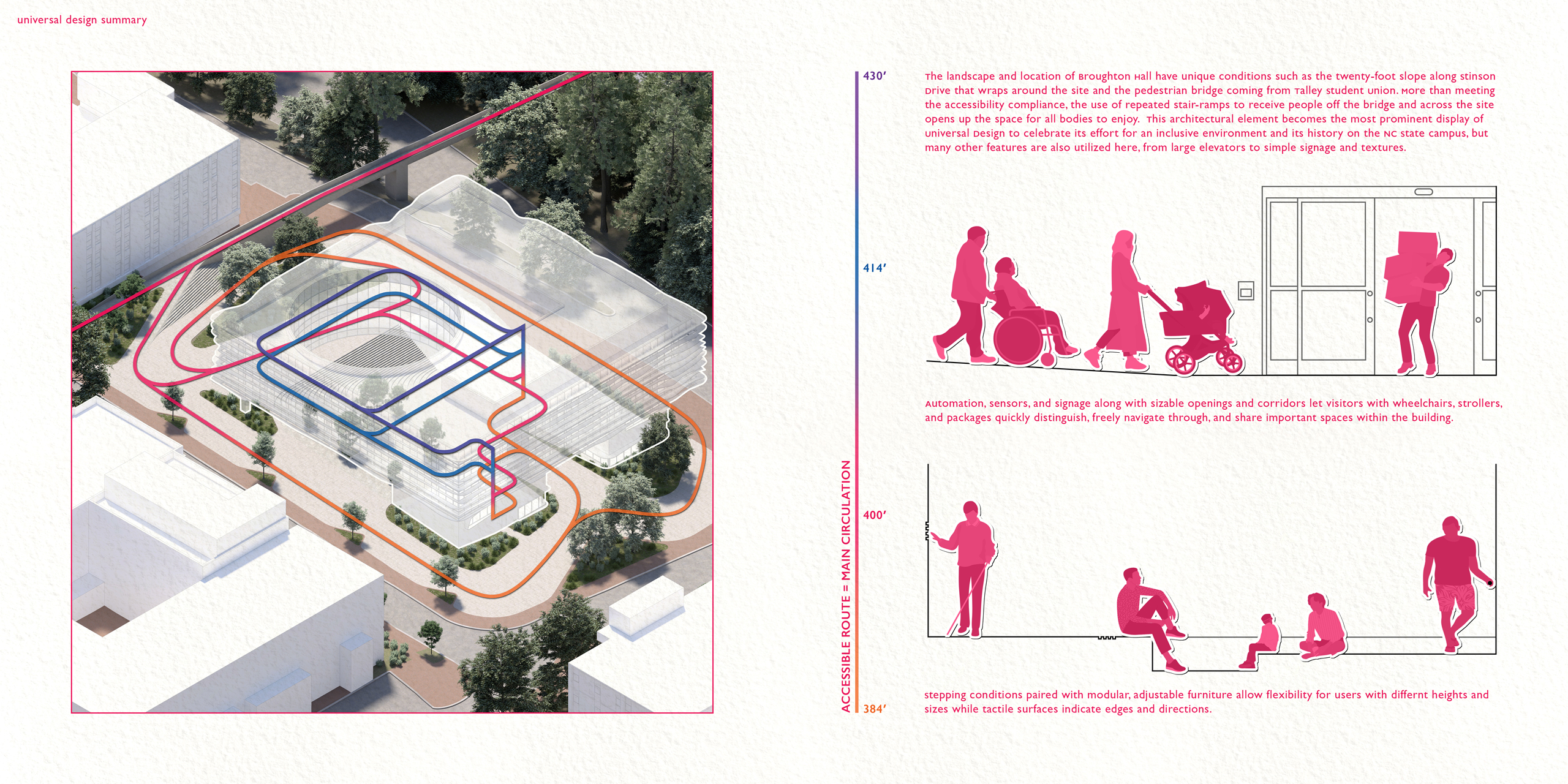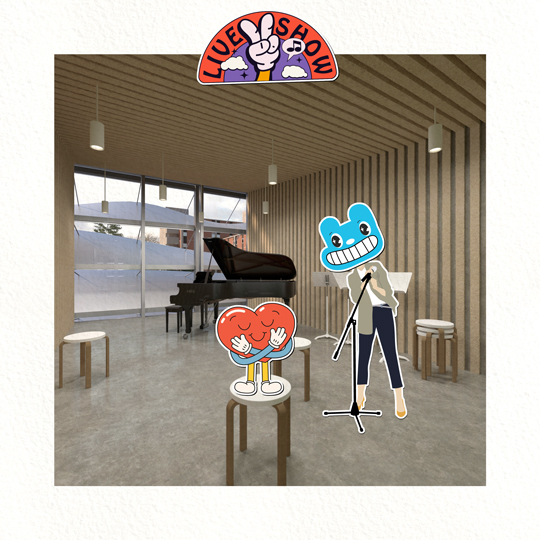First-Year Engineering + Esports Arena
Raleigh, NC USA
The renovation of this 1962 building is mostly interior with all the existing walls demolished for new classrooms, facilities, student affairs, staff suites, and an esports arena. What used to be a series of completely isolated floors has become one cohesive space because of the central stair that connects disparate programmatic elements together. This new lobby invites students and faculty to discover and engage with one another, acting as both the navigation system and the destination. To the exterior shell, careful interventions in specific places like adding the patios at key entrances are implemented to soften the thresholds with social activities and greenery. Every decision and every detail respects the building's original conditions without reproducing any dated designs. Mann Hall is already a recognizable symbol on campus with its rhythmic facade and gravitas, so the design must instead focus on maximizing its function and efficiency to meet contemporary standards of accessibility, inclusivity, and sustainability.
LEED Silver
Raleigh, NC USA
The renovation of this 1962 building is mostly interior with all the existing walls demolished for new classrooms, facilities, student affairs, staff suites, and an esports arena. What used to be a series of completely isolated floors has become one cohesive space because of the central stair that connects disparate programmatic elements together. This new lobby invites students and faculty to discover and engage with one another, acting as both the navigation system and the destination. To the exterior shell, careful interventions in specific places like adding the patios at key entrances are implemented to soften the thresholds with social activities and greenery. Every decision and every detail respects the building's original conditions without reproducing any dated designs. Mann Hall is already a recognizable symbol on campus with its rhythmic facade and gravitas, so the design must instead focus on maximizing its function and efficiency to meet contemporary standards of accessibility, inclusivity, and sustainability.
LEED Silver




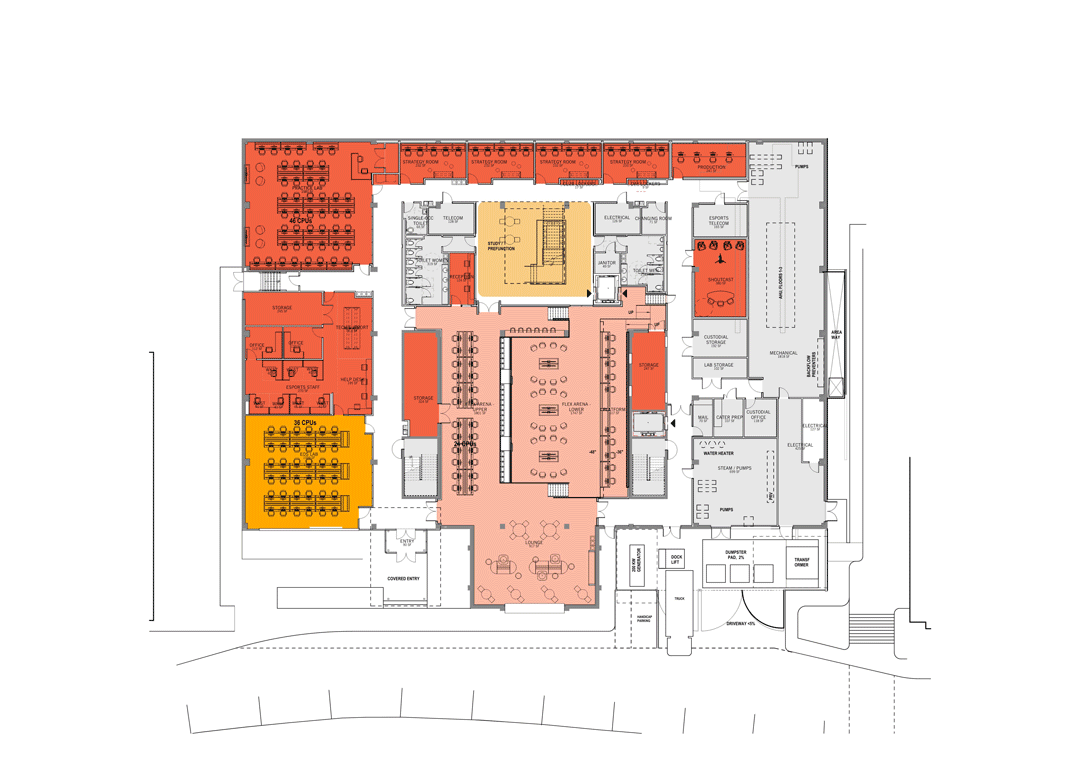









.jpg)
.jpg)






































